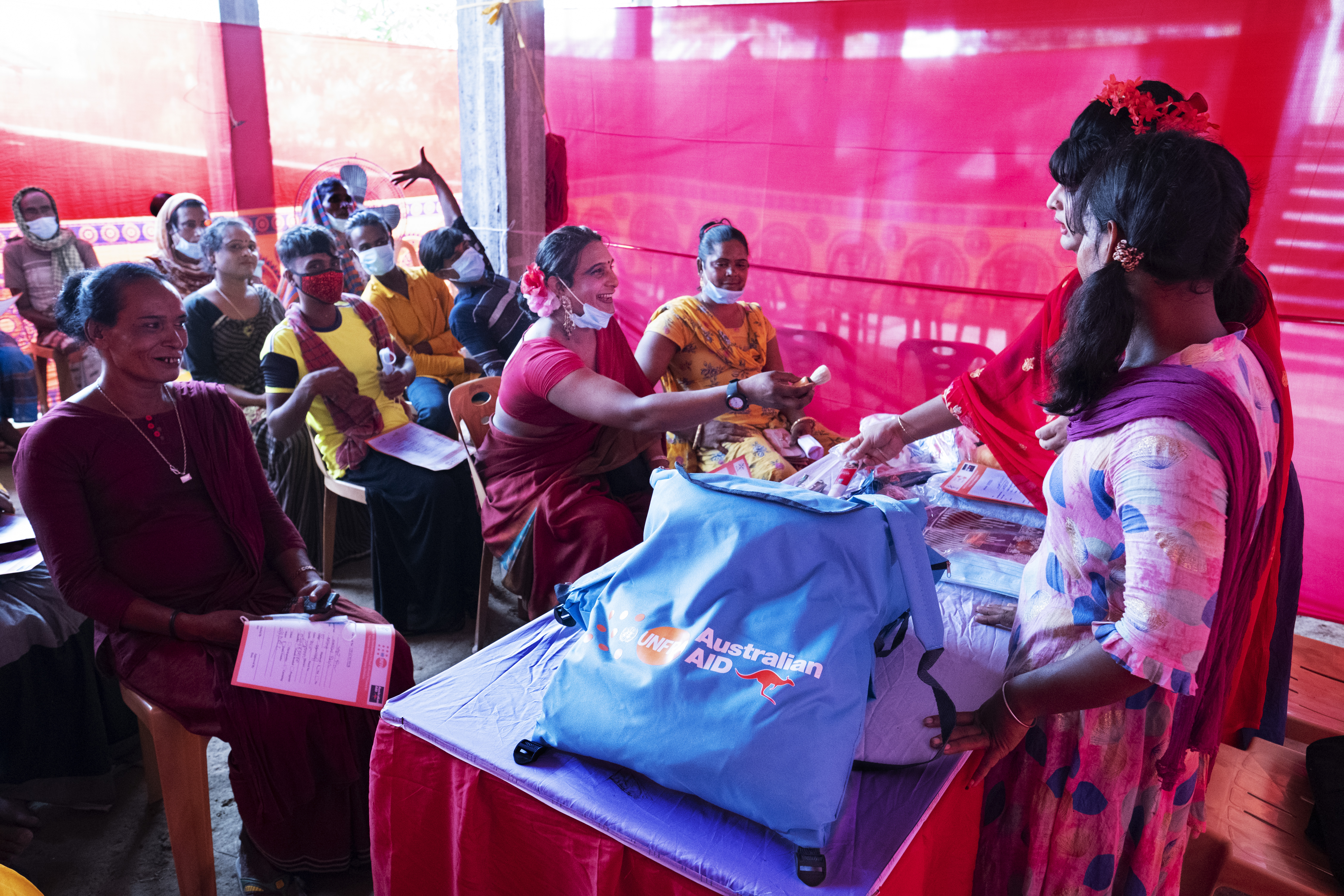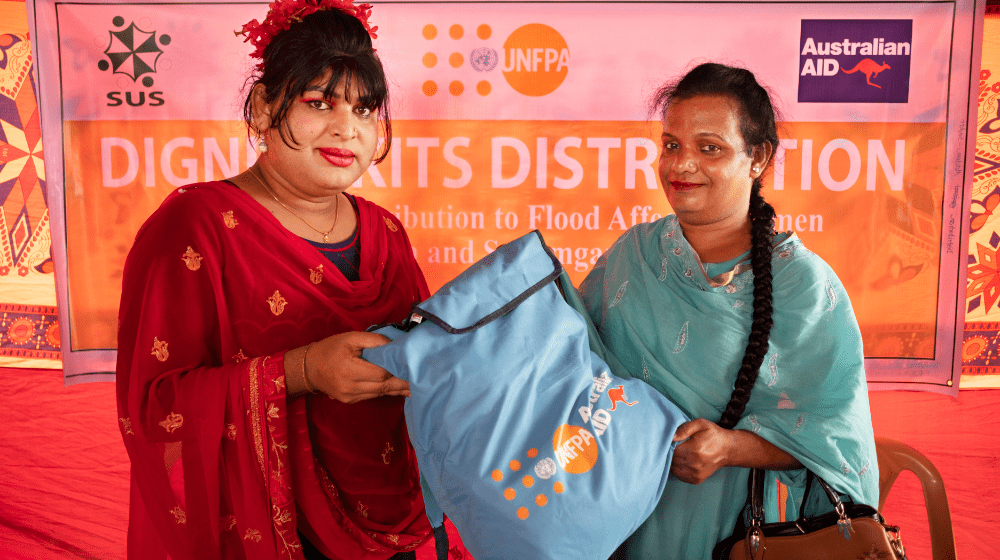Ananya's life was never as easy, and things only got worse during a crisis. She knows firsthand how challenging it can be to be a transgender person in Bangladesh, where prejudice and discrimination continue to be barriers to inclusion.
During a recent flood, Ananya and her community were not allowed to stay in the same shelter as other people. As she puts it, "Are we not human beings, and are we not affected by disasters? If so, then why are we excluded?" But there was a glimmer of hope amidst the chaos: the UNFPA distributed dignity kits to her community, which contained essential items like soap, towels, and slippers.
Ananya was grateful for the support, saying that "It's not often that someone would think of us." With the dignity kit, she and her community could maintain basic hygiene and well-being, which was especially important during a crisis.
Despite the challenges she has faced, Ananya is a fighter. In 2017, she founded a transgender advocacy group called "Shopner Chowa Shomajkollan Sangstha" to empower and employ transgender individuals through business skills instruction. Her goal was to give a voice to transgender people who have long been silenced and marginalized in Bangladesh.
We echo Ananya's commitment to breaking down barriers for transgender people.
In 2022, UNFPA supported a landmark project funded by the UN CERF and the Australian Government Department of Foreign Affairs and Trade (DFAT) to help transgender communities in two of the most flood-prone areas of Bangladesh: Netrokona and Sunamganj districts. Reproductive health needs, especially of women and transgender people, were met when disaster struck.
Together with partners, we distributed 3115 dignity kits to flood-affected women and transgender people. By ensuring sexual and reproductive health and rights are at the centre of adaptation responses to climate change, we can help reduce inequalities and increase the resilience of the people we serve.
For Ananya and her community, UNFPA's support has made a world of difference. Through our joint efforts, we are working towards a future where all people, regardless of their gender identity, can fully participate in society and enjoy their basic human rights.



